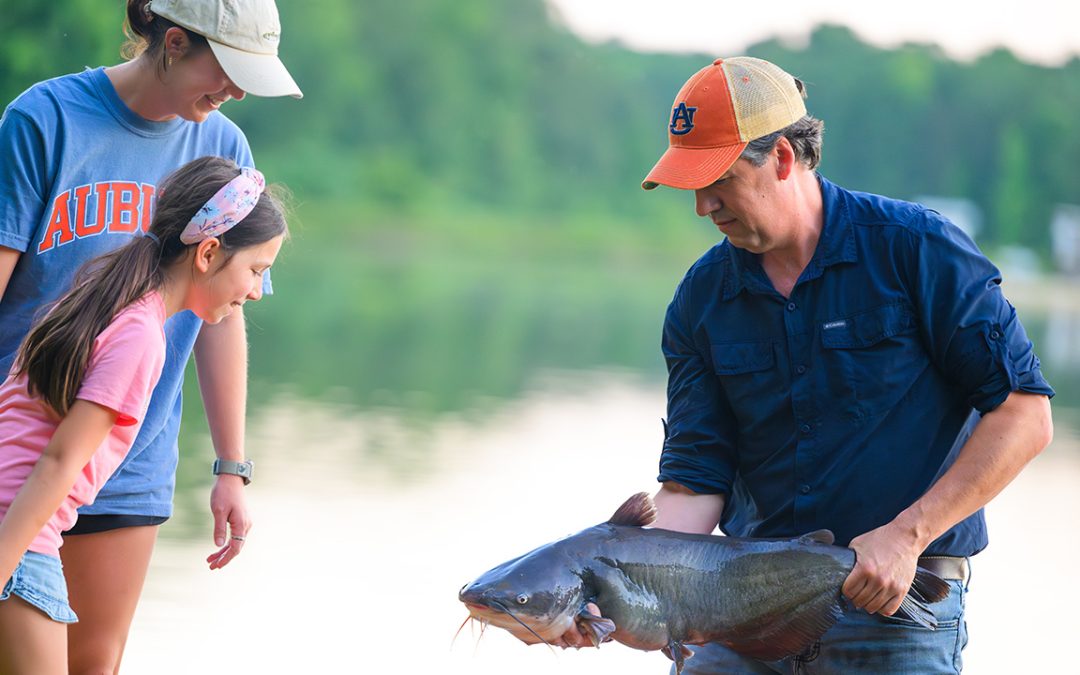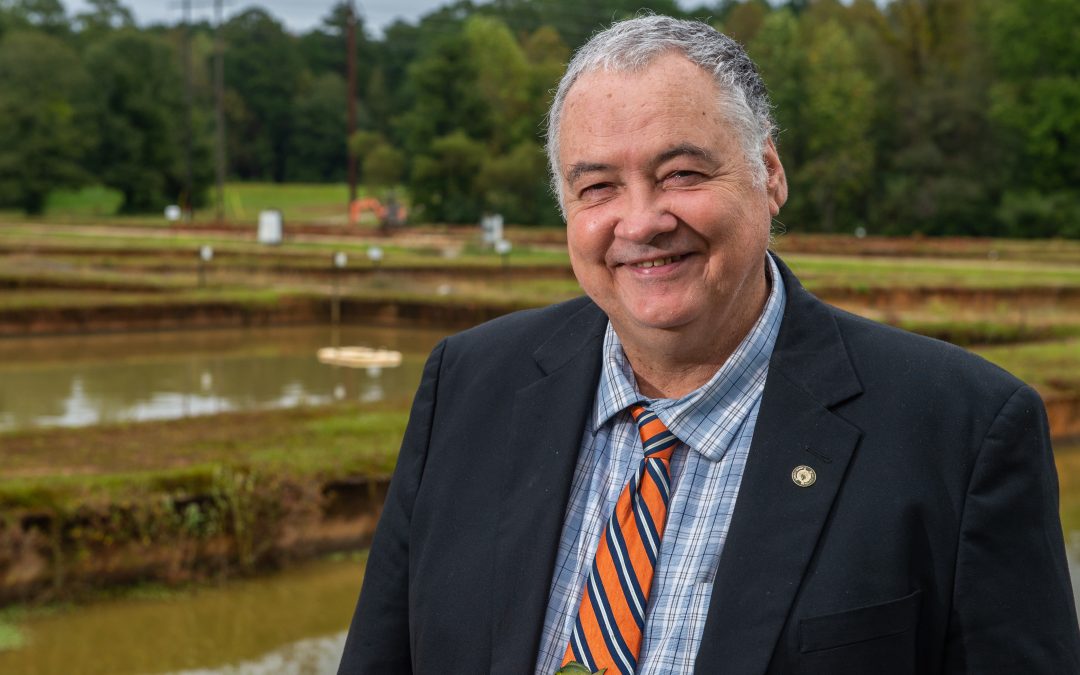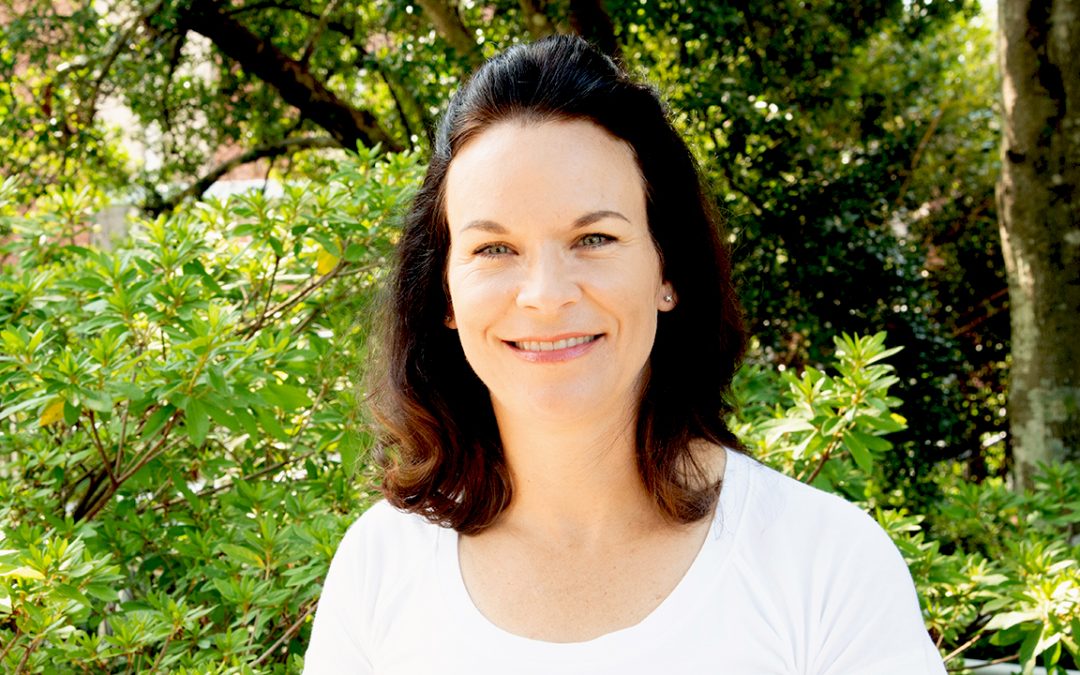by JAMIE CREAMER
 Alabama is home to the most diverse freshwater mussel population in all of North America, with 180 known species dwelling or having once dwelled in the state’s rivers and streams. But in recent decades, their numbers have plummeted as a result of dramatic changes in the bivalve mollusks’ habitat.
Alabama is home to the most diverse freshwater mussel population in all of North America, with 180 known species dwelling or having once dwelled in the state’s rivers and streams. But in recent decades, their numbers have plummeted as a result of dramatic changes in the bivalve mollusks’ habitat.
The changes became noticeable in the early 20th century with the construction of dams that dramatically changed mussel habitats. In addition to dams, channel dredging and sedimentation are deemed major culprits in the shrinking mussel population. But other environmental stressors could be at play, and Jim Stoeckel, assistant professor of fisheries and allied aquacultures at Auburn University, has a research program aimed at determining how some of these factors—drought, temperatures, soil runoff and agricultural chemicals—impact mussel population dynamics.
In a project he has underway in 12 research ponds located at the E.W. Shell Fisheries Research Center’s south Auburn unit, Stoeckel is investigating the effects that glyphosate, more commonly known by the brand name Roundup, has on mussel reproduction and survival.
“We want to identify whether herbicide runoff into streams and ponds is contributing to population declines by increasing the mortality of juvenile mussels,” Stoeckel says.
To accomplish that, Stoeckel and graduate research assistant Michael Hart have stocked each pond with 200 fish of specific species and 10 mussels carrying hundreds to thousands of fertilized eggs. And it is here that Stoeckel pauses to offer a brief glimpse into the fascinating and complex reproductive process of mussels.
The process begins in spawning season, he says, when a male mussel upstream releases sperm and a random female downstream draws in the sperm as she filters water for food. The sperm fertilize the female’s eggs, and the mussel holds the fertilized eggs in its gills, where they develop into larvae known as glochidia.
The mussel then releases the glochidia, which must attach to the gills or fins of a host fish to survive. There, they spend the next several weeks as parasites, growing and feeding on the bodily fluids of the fish until they mature into juvenile mussels. At that point, they drop off the fish and settle to the bottom of the river, stream or pond to develop into adulthood and continue the life cycle.
The catch here is that for many mussel varieties, only specific species of fish can serve as hosts. In the south Auburn study, Stoeckel used bluegill to stock the ponds, as previous research has shown the species to be the necessary host for Ligumia subrostrata, or pond mussel, the mussel species Stoeckel is using in his study.
Four months after stocking the ponds, the researchers applied low concentrations of Roundup over four of the ponds and high concentrations over four others, leaving the final four control ponds untreated. All ponds are covered with netting to keep birds of prey out.
This fall, the researchers will drain the ponds and count the number of new mussels that have been produced in order to determine whether, in this study, the herbicide has affected mussel reproduction population growth.
“Our work isn’t intended to build a case against the use of Roundup or other agricultural chemicals, but to help identify areas where improvements in best management practices and policy related to herbicide application and runoff can help create conditions necessary for the maintenance and recovery of mussel populations,” Stoeckel says.
As filter feeders, freshwater mussels ingest suspended nutrients in the water column and have the ability to greatly improve water quality. When they occur in large enough numbers, they also can help stabilize stream sediments, and healthy populations can provide economic benefits when commercial harvests collect mussel shells for sale to the cultured pearl industry.
Stoeckel also has investigated the effects that drought, temperatures and suspended sediments have on mussel populations and is documenting the various ways that mussel survivorship and reproduction are significantly impacted by all such factors.




